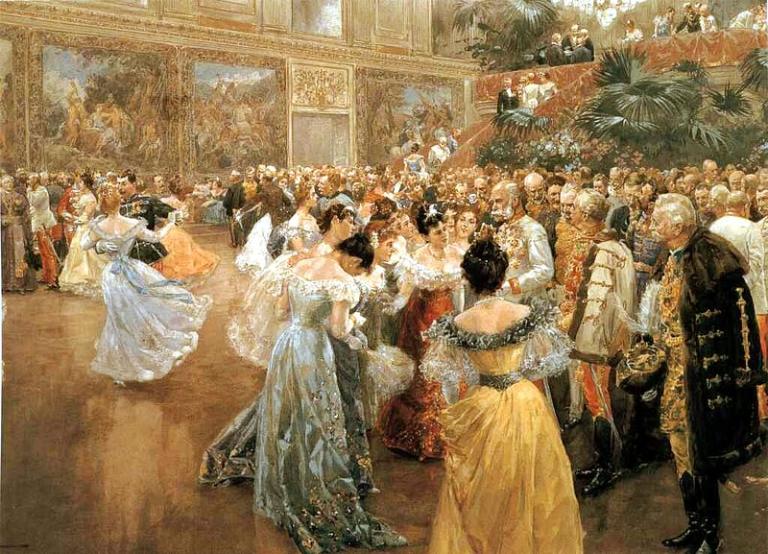
Returning, just now, from dropping a son off at the Salt Lake City airport, I tuned in (as I typically do while driving) to KBYU-FM, which specializes in classical music.
For a substantial portion of the drive, they played, first, Johann Strauss’s Emperor Waltz (the Kaiser-Walzer) and, then, Beethoven’s Egmont Overture.
I’ve loved the music of Johann Strauss for as long as I can remember. But, this time, as I listened to this often-magnificent Strauss piece I found myself envisioning the elegant men and women of 1889 dancing to it, and the sudden thought unexpectedly came to me of how vivid and very alive they once were in that glamorous period of fin-de-siècle Vienna — and that they’re all gone. All of them. Dead and, overwhelmingly, long forgotten.
I can easily imagine notion that, when people die, they cease utterly to exist and are lost forever to a universe that, after all, cares neither for them nor for anything else. But that thought strikes me as inexpressibly sad, and I can’t imagine how anybody, even if convinced that it’s true, could find the idea good news.
Flawed and limited though they were and we are, human minds and personalities are the richest and best aspect of this world in which we live. And the death of any one of them impoverishes us and the world. It’s not a matter of fearing death. It’s a matter of loving life.
As John Donne famously put it,
No man is an island, Entire of itself, Every man is a piece of the continent, A part of the main. If a clod be washed away by the sea, Europe is the less. As well as if a promontory were. As well as if a manor of thy friend's Or of thine own were: Any man's death diminishes me, Because I am involved in mankind, And therefore never send to know for whom the bell tolls; It tolls for thee.
Once I was in that vein, the Egmont Overture also led to reflections about mortality and about the hope granted by the gospel of Christ.
I wrote about this — and, specifically, about the utterly heartrending life of Ludwig van Beethoven — in a 2012 column for the Deseret News:
http://www.deseretnews.com/article/765590762/Beethoven-is-a-study-in-hope-healing.html










